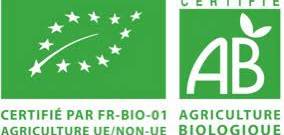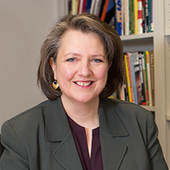
President Joe Biden called for a government response to climate change by seeking solutions and opportunities across all sectors of the US economy. This includes agriculture, which emits more than 600 million metric tonnes of carbon dioxide equivalent each year - more than the total national emissions of the UK, Australia, France or Italy.
Recent polls show that a majority of Americans are concerned about climate change and ready to make lifestyle changes to deal with it.Other surveys show that many American consumers are worried about the possible risks for health to eat foods produced with pesticides, antibiotics and hormones.
One way to address all of these concerns is to develop organic farming. Organic production generates fewer greenhouse gas emissions than conventional agriculture largely because it does not use synthetic nitrogen fertilizer. And it bans the use of synthetic pesticides and the use of hormones or antibiotics for livestock.
But the United States is not currently setting the bar very high for the growth of its organic sector. On the other side of the Atlantic, Europe has a much more targeted and aggressive strategy.
"From farm to fork": the European Union plan
The European Union's strategy, dubbed “from farm to table”, often described as the heart of the green deal for Europe, was adopted in 2020 and reinforced in October 2021. It sets ambitious objectives for 2030: a 50% reduction in greenhouse gas emissions from agriculture, a 50% reduction in the use of pesticides and a 20% reduction in the use of fertilizers.
Recognizing that organic production can make an important contribution to achieving these goals, the policy calls for increasing the percentage of EU farmland under organic management from 8.1% to 25% by 2030. Parliament European has adopted a detailed organic plan to achieve this objective.
Today, the United States is the largest organic market in the world, with sales of US $ 51 billion in 2019. But the EU is not far behind, with $ 46 billion, and if it achieves its farm-to-fork goals, it has the potential to become the world leader.
And this ambition is reflected in national food policies. For example, in Copenhagen, 88% of the ingredients for meals served in the city's 1,000 public schools are organic. Similarly, in Italy, school meals in more than 13,000 schools across the country contain organic ingredients.
The strate gy imp Rican's ax ed technology
Unlike the EU, the US does not have a national plan to develop organic production, nor even a plan to make a plan.
Less than 1% of U.S. farmland - about 5.6 million acres (2.3 million hectares) is cultivated to national organic standards, compared to 36 million acres (14.6 million hectares) in the EU. This small industry does not produce enough organic food to meet consumer demand, so much of the organic food consumed in the United States is imported from nearly 45,000 foreign operations. As the U.S. government tracks imports of just 100 organic food items - a small portion of what comes into play - spending in 2020 on these items alone has exceeded $ 2.5 billion.
This gap is like a huge missed opportunity. President Biden called for a "Buy American" strategy to support the US economy, but today consumers are spending money on organic imports without reaping the environmental or economic benefits of having more land. under organic cultivation. Higher national production would improve soil and water quality and create jobs in rural areas.
As the US and the EU work together to tackle agriculture's contribution to climate change, they have very different views on the role of organic farming. At a United Nations food systems summit on September 23, 2021, Agriculture Secretary Tom Vilsack launched a new international coalition on sustainable productivity growth, calling on countries and organizations to join with the United States in dealing with increased yields to feed a growing world population. In his press briefings, Vilsack promoted voluntary, incentive and technological approaches to producing more food, such as gene creation, precision farming and artificial intelligence.
Vilsack says the European Union's focus on organic production will reduce production will push up food prices. This argument reflects a long-standing debate about whether organic farming can produce enough. of food to meet demand while using fewer chemical inputs.
The strongest support for the USDA's strategy is not a surprise. It comes mainly from conventional agricultural groups, Syngenta, Bayer and Corteva - three of the four largest global agrochemical companies - and their branch lobbying, CropLife America.
More bio doesn't mean going back
It is not unreasonable to think that these American talking points are outdated. Farmers around the world are already producing enough food to feed the world. The question is why a lot of people are still hungry when production is increasing year after year.
At the United Nations Food Systems Summit, many world leaders called for reforms to end hunger, poverty and inequality, and tackle climate change. Experts understand that the world food nutrition security systems depends on the empowerment of women, the elimination of corruption, the fight against food waste, conservation of biodiversity and adopting environmentally friendly production, including organic farming. Increasing yields is not on the list.
Tackling the role of agriculture in climate change means changing the way nations produce, process, transport, consume and waste food. In reality, when leaders call for cutting-edge solutions based on science, they must adopt and support a wide range of scientific data, including agroecology - sustainable agriculture that works with nature and reduces dependence with regard to external inputs such as fertilizers and pesticides.
The Biden-Harris administration could do this by developing a comprehensive plan to realize the untapped potential of organic farming, with clear goals and strategies to increase organic production and, with it, the number of organic farmers. Consumers are ready to buy what American organic farmers grow.
Sources:
 Kathleen Merrigan - Executive Director, Swette Center for Sustainable Food Systems, Arizona State University
Kathleen Merrigan - Executive Director, Swette Center for Sustainable Food Systems, Arizona State University
Kathleen Merrigan heads the Swette Center for Sustainable Food Systems at Arizona State University, which receives funding from the Organic Trade Association. She is co-director of a project on accidental chemical contamination of organic crops funded by the US Department of Agriculture. Merrigan is a member of the Advisory Board of the Organic Agriculture Research Foundation. She is also an advisor to S2G Ventures and a venture partner at Astanor Ventures, two agricultural technology companies that have organic companies in their much larger portfolios. As a staff member of the United States Senate, Merrigan drafted the Organic Food Production Act of 1990. She served on the National Organic Standards Board, as the Administrator of the USDA Agricultural Marketing Department and in as assistant secretary for agriculture.
Posted on 2021-11-05 16:40








Comments